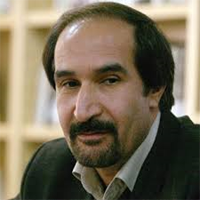Leviathan's Security Strategy: Reflection of the Geopolitical Environment on the Thought of Russian Governance
An important issue in this article is the problems in prioritizing security over economic development in Russia. Issues such as Russia's economic decline to 12th in the world, widespread poverty in society, a sharp decline in population growth and its security effects and most importantly, the transformation of the Cold War superpower into a "Third World superpower" due to massive exports of raw materials are important features of Russia that challenge this security priority. Based on these issues, the main question of this article is "why and how has the national security strategy of Russia become broader, more provocative and more aggressive?" The idea that can be put forward in response to this question is that "understanding the interactions of the three variables of environment, attitude and behavior can show a changing trend in Russia's national security strategy. The crisis in the country's geopolitical and environment has strengthened conservative, state-oriented and authoritarian attitudes, and has led to the formation of a broad, provocative and offensive security strategy, which has led to the reproduction of more difficult security conditions".
The research method in this article is "qualitative analysis". The author tries to examine Russia's security strategy, the reasons and factors that shape it, especially focusing on the relationship between the geopolitical environment, political discourse and the thought of the Russian statehood. Then, on the basis of "available documents and data" and, most importantly, the latest official document issued by Russia President called "National Security Strategy of the Russian Federation" in July 2021, and of course, as necessary, other state's strategic documents, like the 2015 National Security Strategy, provide a "secondary analysis" of the reasons and factors associated with the development of Russia's national security strategy.
In the text, we discussed Russia's geopolitical implications and national security strategy, and found that the country's security environment is global, regional, and national, with specific geographical and cultural dimensions. And some fixed elements and dynamic geopolitical features of Russia in recent decades by three normative, institutional and strategic elements from the West (Western values, NATO expansion and missile shield deployment), non-governmental actors from the South (extremism and terrorism), and the flow of population from the east (Chinese immigrants), are seriously threatened. Russia's regional geopolitical environment is not limited to the western borders of Norway, Finland, and the Baltic Sea to the Black Sea and even Georgia in the Caucasus, or the eastern border with Japan and the Bering Strait with the United States. Rather, with the Arctic as a major security issue over the past decade, Moscow has been placed under a three-pronged fence. Since 2012, as Western security pressures have intensified, reactions in Russia have intensified, leading to the Ukraine crisis and the occupation of Crimea and intervention in the Ukrainian sovereignty since 2014.In a global and national geo-cultural environment, the discourse of liberal democracy and its norms and institutions was first welcomed in the 1990s in the absence of ideology in Russia. But then, with the beginning of Putin era, efforts were made to engage with him, and the strategy of participation and competition of the first decade of the 21st century reflected Russia's limited adaptation and response to liberal democracy. During this period, Kremlin officials still emphasized the concepts of Russian democracy, guided democracy, and sovereign democracy. But gradually, and especially after 2012, indigenous, religious, neo-Eurasian attitudes, especially neo-conservative thought and the re-reading of the works of conservative thinkers such as Ivan Eileen and Alexander Solzhenitsyn began, and their important concepts entered the texts and training programs and became a dominant trend.Concepts such as powerful state, authoritarianism, Putinism, and constitutional change should be seen as signs of the reproduction of Tsarist and communist Russian government in the 21st century. The government has prioritized security over economic development and Inside Russia, it has addressed the issue of concentration and its requirements for control, personalization of power, and the dismantling of the concepts of democracy, elections, parliament, and public opinion and in the external environment, the use of force as a vital factor in the political and strategic culture of Kremlin history, as in Georgia, Ukraine and Syria, will not be neglected.
Thus the geopolitical and cultural environment of Russia and the concerns arising from their problems have made the mentality and attitude of the Russian elite more susceptible to the reproduction of the concepts and ideas of state and authoritarianism. This issue has become a key factor in the national cultural discourse and it has put the security strategy above the agenda of the Kremlin's governing system, a strategy that, on the one hand, has become a broader and more comprehensive umbrella for economic, cultural, social and diplomatic policies, and has placed them in the light of its necessities and requirements, and on the other hand, compared to previous periods, it seems more provocative, violent and aggressive
- حق عضویت دریافتی صرف حمایت از نشریات عضو و نگهداری، تکمیل و توسعه مگیران میشود.
- پرداخت حق اشتراک و دانلود مقالات اجازه بازنشر آن در سایر رسانههای چاپی و دیجیتال را به کاربر نمیدهد.


